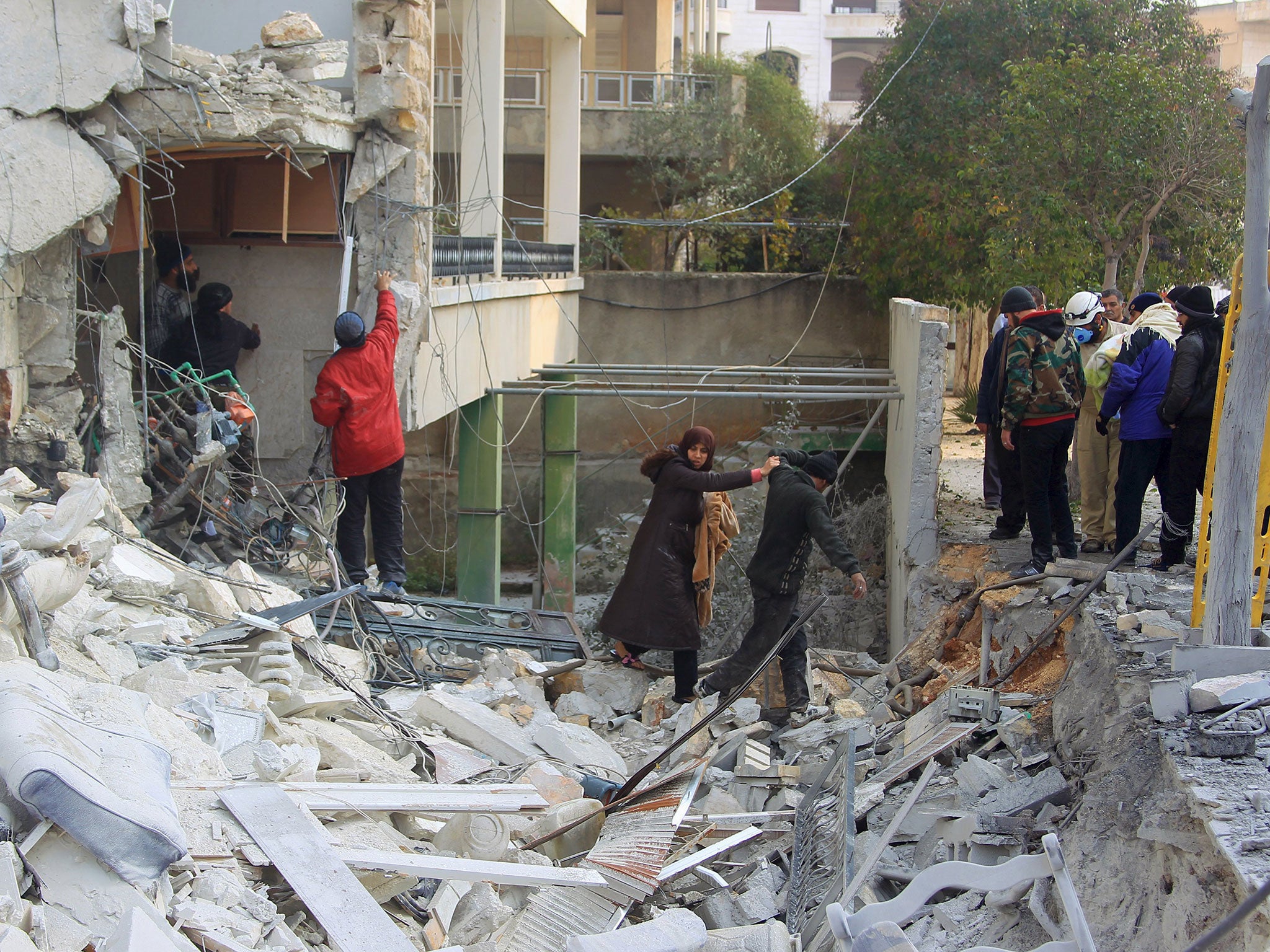Syria: Russian air strikes kill at least 73 people in rebel-held Idlib
Human Rights Watch said Russia's bombing campaign has included extensive use of cluster munitions

Your support helps us to tell the story
From reproductive rights to climate change to Big Tech, The Independent is on the ground when the story is developing. Whether it's investigating the financials of Elon Musk's pro-Trump PAC or producing our latest documentary, 'The A Word', which shines a light on the American women fighting for reproductive rights, we know how important it is to parse out the facts from the messaging.
At such a critical moment in US history, we need reporters on the ground. Your donation allows us to keep sending journalists to speak to both sides of the story.
The Independent is trusted by Americans across the entire political spectrum. And unlike many other quality news outlets, we choose not to lock Americans out of our reporting and analysis with paywalls. We believe quality journalism should be available to everyone, paid for by those who can afford it.
Your support makes all the difference.Air strikes believed to have been carried out by Russian warplanes killed scores of people in the centre of the rebel-held city of Idlib in north-west Syria today, rescue workers and residents said.
They said at least six strikes had hit a busy marketplace in the heart of the city, several government buildings and residential areas.
Rescue workers said they had confirmed 43 dead but that at least 30 more bodies had been retrieved that had still to be identified.
“There are a lot of corpses under the rubble,” Yasser Hammo, a civil defence worker, said via an internet messaging system, adding that volunteers and civil defence workers were still pulling bodies out.
Footage on social media and the pro-opposition Orient TV station showed makeshift ambulances rushing with injured civilians through an area where people were searching for survivors among the debris of collapsed buildings.
One local resident, Sameh al-Muazin, said he had seen mangled bodies in the main Jalaa street of the city, adding that people feared a further round of intensive bombing. Residents say they distinguish Russian planes that fly at high altitudes in sorties from Syrian helicopters that mainly drop indiscriminate barrel bombs at much lower heights.
“Everyone is afraid that this is just the beginning,” he said.
Russia began a major aerial campaign on 30 September in support of the Syrian President Bashar al-Assad, its ally, who earlier in the year had suffered a series of setbacks including the loss of Idlib province and areas near the coast which are of crucial strategic importance.
Moscow says it targets Isis militants but rebels and residents say they are causing hundreds of civilian casualties through indiscriminate bombing of areas well away from the front lines.
Human Rights Watch said the campaign has also included extensive use of cluster munitions – inherently indiscriminate and internationally banned weapons. The use of such weapons is in violation of United Nations resolution 2139. Last month, the Syrian foreign affairs ministry insisted the regime did not and would not use indiscriminate weapons. That same day, according to HRW, cluster munitions hit a camp for internally displaced people in a village in Idlib province, near the Turkish border.
A coalition of Islamist rebels took Idlib city, the capital of a north-western province of the same name, earlier this year. It had previously been largely spared by the Russian warplanes.
Idlib was part of a United Nations-brokered ceasefire deal reached in September by warring parties. The city has attracted thousands of ordinary Syrians displaced by the fighting in areas in northern Syria and has also become the centre for a local administration run by Islamist insurgents.
Reuters
Join our commenting forum
Join thought-provoking conversations, follow other Independent readers and see their replies
Comments